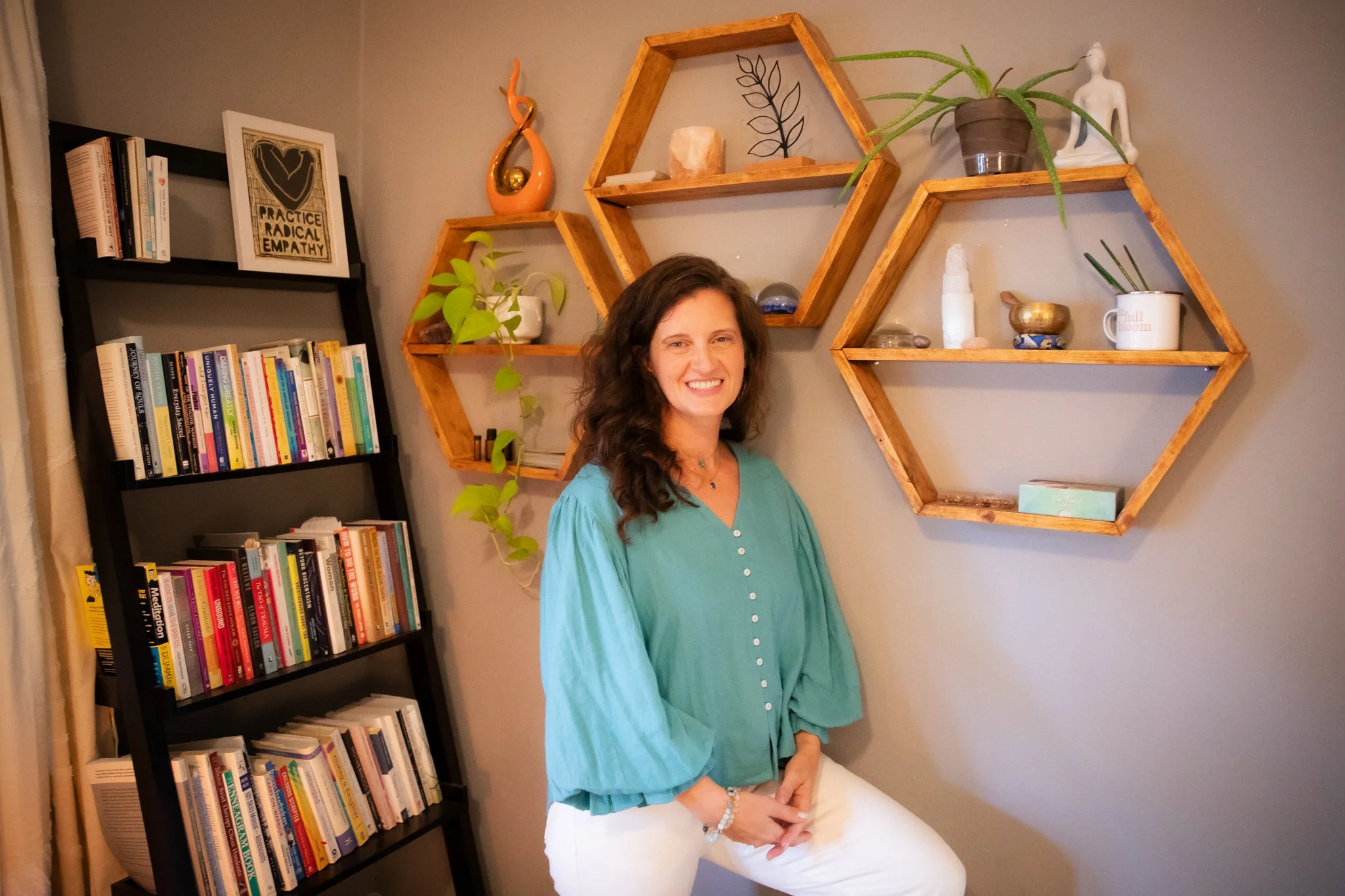Therapy for Later- Identified Neurodivergent Women
In Asheville, NC and Online Across North Carolina & Arizona
When you are finally seeing yourself more clearly…
Discovering you are neurodivergent later in life can feel like everything and nothing changes at once. For many women, it explains a lifetime of feeling different, working harder than others to “keep up,” or masking parts of yourself just to belong. For some, it brings a huge sense of relief; for others, it can stir up grief, anger, or questions about who you really are.
Whether you’re formally diagnosed, self-identified, or still exploring whether you might be/have autistic, ADHD, OCD, or otherwise neurodivergent, your experience is valid. Therapy can offer a safe and affirming place to process what this means for you, reclaim your story, and begin to live in a way that feels more authentic and sustainable.
The reality for many late-identified neurodivergent women
A lifetime of masking or adapting to others’ expectations, often leading to exhaustion or burnout
Anxiety, depression, or complex trauma layered on top of being misunderstood or misdiagnosed
The added complexity of co-occurring ADHD or other differences, making daily life feel harder than it “should”
Struggles in relationships — giving too much, over-functioning, or feeling unseen and misattuned
Grieving missed years of understanding and support, while questioning how to move forward
Longing to belong, to unmask, and to live in deeper alignment with your true self
Hi, I’m Brooke.
I’m a trauma-informed, holistic therapist based in Asheville, NC. I specialize in working with women who are discovering — or questioning — their neurodivergence later in life. My approach weaves together EMDR, Internal Family Systems (IFS/parts work), EFT (tapping), somatic and polyvagal practices, and energy work. I believe healing isn’t about becoming someone new — it’s about untangling old stories, reclaiming your true identity, and learning how to live in a way that finally feels like you.
Like many of my clients, I know firsthand what it’s like to wrestle with sensitivity, burnout, masking, and the pressure to perform in ways that don’t come naturally. As a late-identified AuDHD woman, my own lived experience informs the way I show up in the therapy room — with compassion, curiosity, and a deep respect for how complex this journey can be.
I also know how transformative it feels to have a safe place where you don’t have to explain or justify your differences — where you can begin to unmask, grieve, explore, and grow. That’s the space I hold for the women I work with.
How therapy can help
In therapy, we create space for you to:
Explore what it means to identify (or question whether you might identify) as autistic or neurodivergent
Process grief, anger, and confusion while also honoring relief, clarity, and new possibilities
Understand the overlap between autism, ADHD, anxiety, depression, and trauma in your own life
Learn neurodivergent-friendly regulation tools that support your nervous system without adding pressure or shame
Practice boundaries, honor sensory and emotional needs, and find your voice
Reconnect with the parts of you that have always been there — the parts that may have been masked, silenced, or overlooked
My approach
I offer a gentle, trauma-informed, and neurodiversity-affirming approach that adapts to your unique brain and nervous system. My work weaves together EMDR, IFS/parts work, EFT (tapping), somatic and polyvagal practices, and energy medicine.
Therapy with me isn’t about trying to make you “less autistic” or “less ADHD.” It’s about helping you feel safe enough to unmask, understand yourself more fully, and create a life that works for you — not one that drains you.
I know how powerful it can be to finally work with a therapist who understands and affirms your neurodivergent experience. My role is to walk alongside you as you explore your identity, release what no longer fits, and discover a deeper sense of freedom, belonging, and self-acceptance.

Next steps
If you’re a late-identified autistic woman — whether formally diagnosed, self-identified, or just beginning to wonder — you don’t have to figure it all out alone. Therapy can help you navigate this transition, make sense of your past, and build a future that feels like your own.
I offer therapy in person in Asheville, NC and online across North Carolina and Arizona.
👉 Reach out today to schedule your free consultation.





